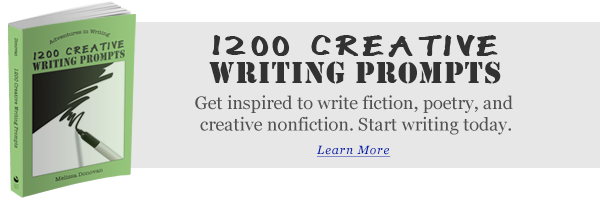What is philosophy?
Let’s turn to Wikipedia for a simple, straightforward definition:
“Philosophy is the study of general and fundamental problems, such as those connected with existence, knowledge, values, reason, mind, and language…It is distinguished from other ways of addressing such problems by its critical, generally systematic approach and its reliance on rational argument.”
Today’s journal prompts encourage you to ponder and challenge your own beliefs and ethics.
While these journal prompts will inspire you to think about your own ideas and ideals through critical thinking and discovery writing, they can also be applied to other writing projects. For example, use these prompts to write a poem or to answer questions from the perspectives of characters in a story that you’re writing.
Journal Prompts
Each of the journal prompts below asks a question. Answer one or answer them all.
- What are the origins of the universe? Throughout history, many stories have been told about the genesis of the universe. Some people rely on religion to answer this question; others look to science. What do you think?
- Do you believe in a supreme being or higher power? Are you atheist or agnostic? How did you arrive at your spiritual beliefs? Have you always held the same beliefs or has your perspective changed over time?
- Why are we here? Is there a purpose or meaning to life? If so, what is humanity’s role in the greater context of the universe? If there is a purpose to human life, does it stand to reason that there is also a purpose to animal and plant life?
- Fate or free will? Do you believe in destiny or do you believe that life’s outcome is strictly the result of choice and circumstance? What experiences or evidence has led you to your position on free will vs. fate?
- Do you believe in absolute good and evil? Are good and evil counterpoints that are constantly striving to balance each other out? Do good and evil both have to exist or can one eliminate the other permanently?
- Are your morals and ethics circumstantial or static? For example, if you believe it’s wrong to kill another person, is it always wrong or are there exceptions? What other moral beliefs do you hold, and what are some exceptions that would cause you to put those morals aside?
- Dystopia is an imagined world in which humanity is living in the worst possible (or most unfavorable) conditions. One person’s dystopia is another person’s utopia: what would the world look like in your version of dystopia?
- Utopia is the opposite of dystopia. It is an imagined world in which humanity is living in the most ideal and favorable conditions. What does your utopia look like?
- What happens when we die? This is a question many people don’t like to think about even though it’s the only certainty in life and the one thing that happens to every single living thing. Do you believe in an afterlife? Is the jury still out? Where did you get your ideas about what happens at death?
You might be able to get several writing sessions out of each of these journal prompts. After all, some of the greatest thinkers throughout history have dedicated their lives to pondering and writing on these questions.
Did you find these journal prompts helpful or inspiring? How often do you use writing prompts? Share your thoughts by leaving a comment.






I thought these prompts were very interesting and thought provoking. I have often thought of writing on some of these ideas, and you have encouraged me to give it a try. Also have sent it to my writing group.Thanks.
June Hubatsek
Thanks, June. These prompts are meant to inspire critical thinking, which can be applied not just to oneself but also to characters and interview subjects. Good luck!
Dystopia – everyone has to look the same.
Utopia – everyone is a vegetarian 🙂
I think these questions are a great way to understand your characters. What do THEY think of god, life and death? Even if it won’t appear in a final draft, it’s nice to know your characters on a deeper level.
Ha! Your dystopia and utopia look pretty similar to mine.
Wow, these prompts are amazing! I’m starting a journal and was searching the web for ideas and this one is the best yet. 🙂
Thank you! I’m glad you liked these prompts.
Excellent advice, Melissa. Thank you for making explicit the use of philosophical ideas as writing prompts. It’s something I’ve been doing intuitively but now that you have expressed it so clearly, I’ll pursue this source of ideas more diligently.
Thanks, Ronald. I’m glad you liked these prompts!
Love these prompts. Fantastic!
You have a link at the bottom under “Trackbacks/Pingbacks” and the link doesn’t seem to full work. Is that site still active? Asking because I was curious about her blog post!
Thank you!
Cindy
That seems to have been a mistake. I’ve taken care of it. Thanks, Cindy!